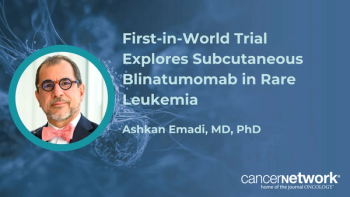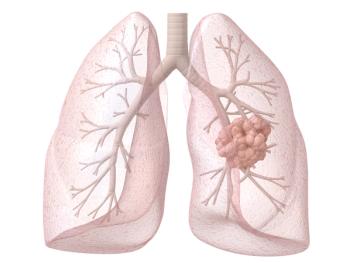
Alpha-Lactalbumin Vaccine May be ‘Exciting’ Option for Preventing/Treating TNBC
More funding is necessary for additional trials investigating the potential clinical benefit of an alpha-lactalbumin vaccine for patients with high-risk operable triple-negative breast cancer and those at high risk of developing the disease, says G. Thomas Budd, MD.
In a conversation with CancerNetwork® during the
According to Budd, a medical oncologist in the Department of Hematology and Medical Oncology at the Cleveland Clinic, investigators are planning to assess the vaccine as adjuvant therapy, as patients who receive standard treatment may still be at risk for recurrence due to potential residual disease at the time of surgery. Additionally, he said that the vaccine would be further researched in patients who are at a high genetic risk of developing TNBC.
Data from a phase 1 trial presented at SABCS highlighted immune responses that met protocol specifications in 7 of 10 patients as determined with the ELISpot assay. Investigators also reported their plans to begin accrual of those with BRCA1/2 or PALB mutations who are set to undergo prophylactic mastectomy.
Transcript:
There is progress being made; we do plan to expand this [research] in two routes. One is in the adjuvant setting; patients who receive standard treatment are still at risk for recurrence because of residual disease at the time of surgery or however it may be defined in the future. They can receive this vaccination. In patients who are particularly at genetic risk for triple-negative breast cancer, hopefully, we'll be able to do a trial that demonstrates clinical benefit in that group of patients, as well.
Now, that's a tough group to study because it's not a large group. It's going to take a long time for patients to develop cancer, and of course there are surgical options at present. But it would be a very exciting approach, and we're really looking forward to trying to get funding to do these additional trials.
Reference
Johnson JM, Rhoades E, Levengood H, et al. Phase I trial of alpha-lactalbumin vaccine in high risk operable triple negative breast cancer (TNBC) and patients at high genetic risk for TNBC. Presented at the 2023 San Antonio Breast Cancer Symposium; December 5-9, 2023; San Antonio, TX; abstract PO2-17-12.
Newsletter
Stay up to date on recent advances in the multidisciplinary approach to cancer.












































